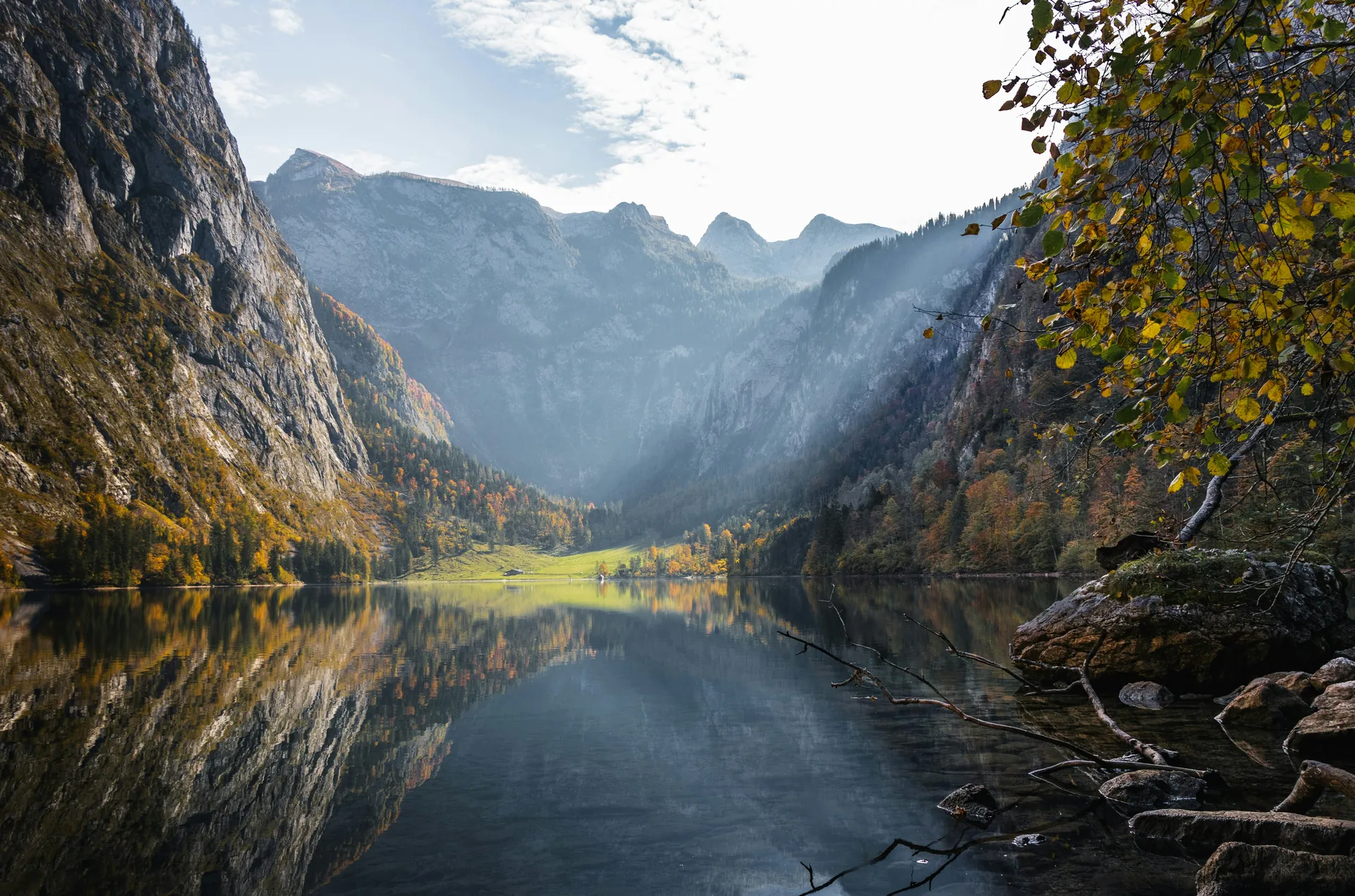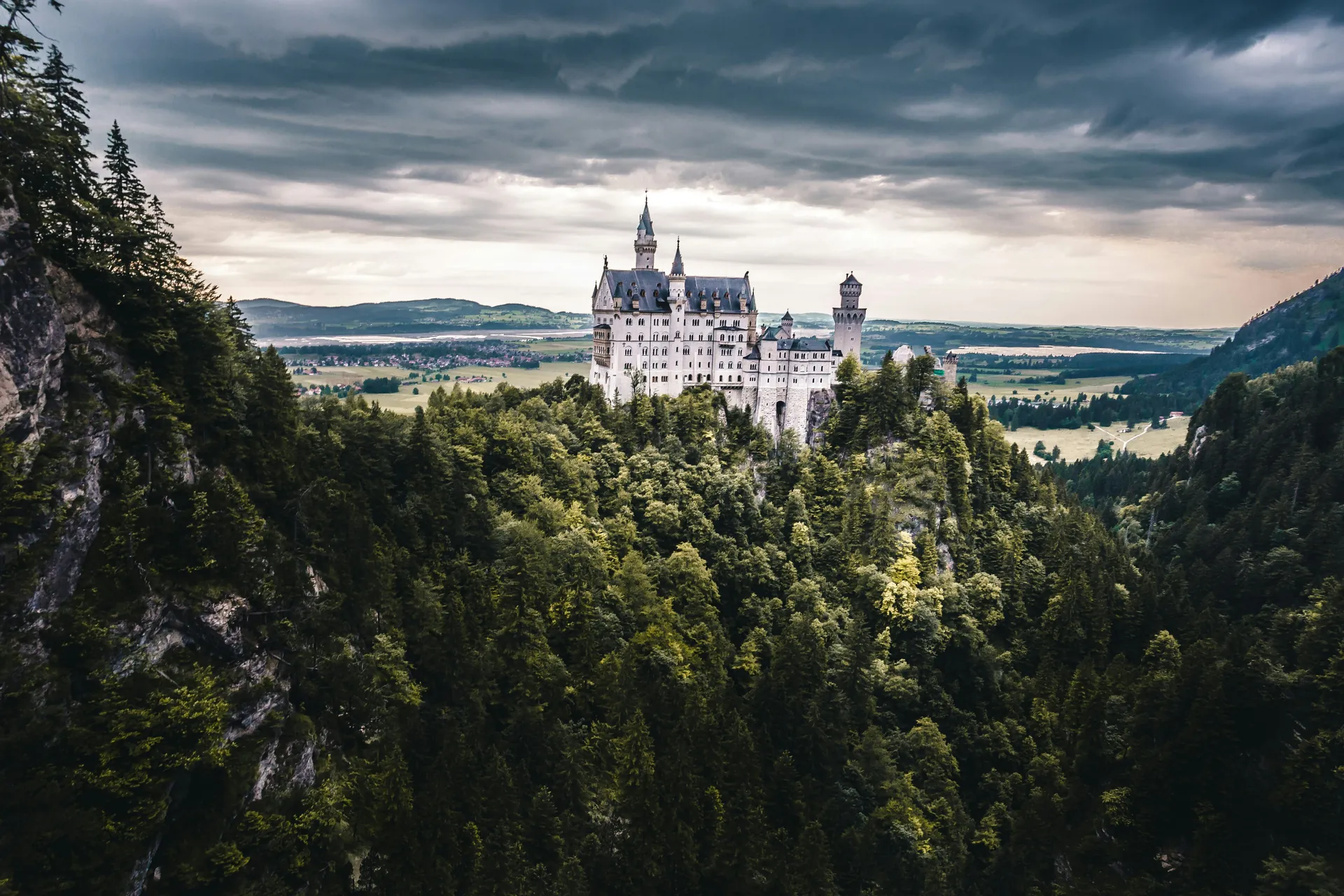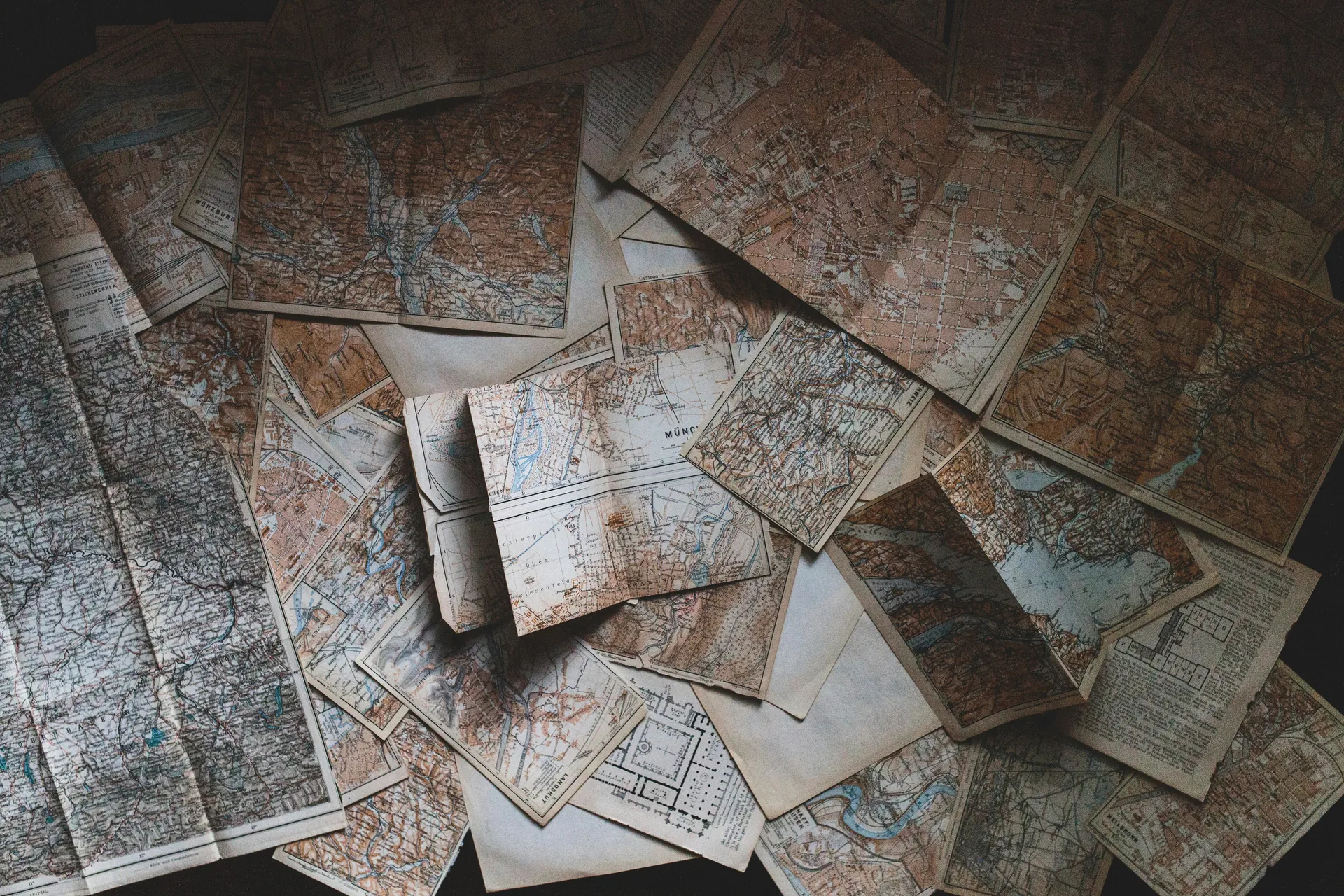12 Best Places To Visit In Bavaria Germany: Germany Travel Guide In 2025
If you’re planning your next European adventure, Bavaria, Germany, should be at the top of your list for 2025. Renowned for its breathtaking landscapes, rich cultural heritage, and vibrant traditions, Bavaria offers a diverse array of experiences that cater to travelers of all types. From exploring castles in Bavaria 2025 to adventuring through the Bavarian Alps, there's something for everyone.
From the majestic Bavarian Alps to historic towns and castles, and from the world-famous Oktoberfest celebrations to serene lakes and forests, Bavaria is a treasure trove of must-see destinations and unforgettable experiences. This Bavaria travel guide 2025 will dive into the top attractions in Bavaria 2025, including the best cities to visit in Bavaria, ensuring you make the most of your adventure.
Why Bavaria Should Be On Your 2025 Travel List

Bavaria stands out as a must-visit destination in 2025 for a multitude of compelling reasons. One of the most significant attractions is its rich and vibrant cultural scene. Bavarian culture, with its strong Catholic roots and unique traditions, offers an immersive experience that sets it apart from the rest of Germany.
The region's distinct dialects, such as Bairisch, and its iconic festivals like Oktoberfest, which attracts millions of visitors each year, are just a few examples of its cultural richness.
The region is also a paradise for history and architecture enthusiasts. Bavaria is home to some of the most stunning castles in Europe, including the world-famous Neuschwanstein Castle, which is a must-visit for anyone traveling to the area.
This fairytale-like castle, inspired by the operas of Richard Wagner, is not only a marvel of architecture but also a testament to the region's historical significance.
Bavaria's natural beauty is another compelling reason to visit. The Bavarian Alps offer breathtaking landscapes, perfect for hiking, skiing, and other outdoor activities. Follow Bavarian Alps travel tips to discover the best routes and views during your trip in 2025.
Places like Garmisch-Partenkirchen and Berchtesgaden National Park provide opportunities to explore Germany's highest peak, the Zugspitze, and enjoy the serene beauty of the Alpine villages. The national park, established in 1978, is the only alpine national park in Germany and offers a unique blend of natural beauty and ecological significance.
In addition to its natural and cultural attractions, Bavaria is renowned for its festive atmosphere. The region celebrates life through numerous folk festivals, many of which have historical roots. Oktoberfest in Munich 2025, held from September 20 to October 5, is the pinnacle of these celebrations. Meanwhile, other events like Bavarian Christmas Markets 2025 and traditional fairs showcase Bavaria's heritage beautifully.
For those interested in gastronomy, Bavaria's hearty beer-centered cuisine and traditional dishes like Weisswurst and pretzels are a culinary delight. The region's beer culture, with its traditional beer halls and festivals, is a highlight that no visitor should miss.
Whether you're enjoying a cold beer in a Munich beer garden or savoring local delicacies, Bavaria's culinary scene is sure to leave you satisfied.
Lastly, the warm and welcoming nature of the Bavarian people makes the region an ideal destination for travelers. Known for their community-oriented spirit and deep connection to their heritage, Bavarians ensure that visitors feel at home, whether they are participating in local traditions or simply enjoying the local hospitality.
Top 12 Places to Visit in Bavaria in 2025

1. Neuschwanstein Castle – The Iconic Fairy-Tale Castle
Neuschwanstein Castle is one of the most recognizable landmarks in Bavaria and a must-visit for any traveler. This enchanting castle, which inspired Disney's Sleeping Beauty Castle, offers a unique and magical experience. Visitors can only explore the castle as part of a guided tour, available in both German and English, which includes the 14-room tour showcasing the state rooms and the king’s private quarters.
With priority access tickets available online, you can skip the long lines and enjoy stunning views of the surrounding valleys and lakes. Be aware that the Marienbrücke bridge may be closed during winter due to weather conditions, but this does not affect access to the castle or the guided tours.
2. Munich – Bavaria’s Cultural Capital
Munich, the capital of Bavaria, is a city rich in culture, history, and entertainment. From the iconic English Garden, one of the largest urban parks in the world, to the vibrant Marienplatz with its famous Glockenspiel, Munich offers a blend of traditional and modern experiences.
The city is also home to numerous museums, including the renowned Deutsches Museum, and is famous for its Oktoberfest celebrations, making it a hub for cultural and festive activities.
3. The Romantic Road – Scenic Driving Route
The Romantic Road (Romantische Strasse) is a scenic driving route that spans over 350 kilometers, connecting the towns of Würzburg and Füssen. This route passes through some of Bavaria's most picturesque towns, including Rothenburg ob der Tauber and Dinkelsbühl, offering a glimpse into medieval Germany.
The route is dotted with historic castles, churches, and charming villages, making it a perfect day trip or a longer, more leisurely journey.
4. Zugspitze – Germany’s Highest Peak
Zugspitze, located near Garmisch-Partenkirchen, is Germany's highest peak and a popular destination for outdoor enthusiasts. Whether you are skiing in the winter or hiking in the summer, Zugspitze offers breathtaking views and exciting activities.
The Zugspitze cable car provides easy access to the summit, where you can enjoy panoramic views of the Alps and surrounding landscapes.
5. Nuremberg – Medieval Charm and History
Nuremberg is a city steeped in medieval charm and historical significance. The city's old town, with its well-preserved architecture, is a must-visit, featuring landmarks like the Nuremberg Castle and the Hauptmarkt. Nuremberg is also renowned for its Christmas market, one of the largest and most famous in Germany. Additionally, its somber history is reflected in sites like the Dachau Concentration Camp Memorial Site, which serves as a poignant reminder of the past.
6. Bamberg – A UNESCO World Heritage Site
Bamberg, designated as a UNESCO World Heritage site, is celebrated for its well-preserved medieval architecture and unique cultural heritage. The city's old town is home to iconic landmarks such as the Bamberg Cathedral, the New Residence, and the Old Town Hall, each offering significant historical insights. Bamberg is also famous for its smoked beer and traditional Franconian cuisine, making it an ideal destination for food and history enthusiasts.
7. Berchtesgaden National Park – Nature and Adventure
Berchtesgaden National Park, located in the southeastern part of Bavaria, is a nature lover's paradise. The park boasts a variety of hiking trails, scenic views, and opportunities for wildlife spotting. It is also home to the Eagle's Nest, a historic retreat built for Adolf Hitler, which now serves as a restaurant offering stunning views of the surrounding mountains.
8. Passau – The City of Three Rivers
Passau, situated at the confluence of the Danube, Inn, and Ilz rivers, is known as the "City of Three Rivers." This charming city is steeped in history, with landmarks such as St. Stephan's Cathedral and the Veste Oberhaus fortress.
Passau also serves as an excellent starting point for river cruises and cycling tours along the Danube River.
9. Regensburg – A Medieval Masterpiece
Regensburg is one of the best-preserved medieval cities in Europe, with a history dating back to the Roman era. The city's old town features narrow streets, historic buildings, and the iconic Stone Bridge.
Regensburg is also home to the Regensburg Cathedral and the Thurn and Taxis Palace, making it a treasure trove of historical and architectural wonders.
10. Chiemsee – The Bavarian Sea
Chiemsee, often referred to as the "Bavarian Sea," is the largest lake in Bavaria and a popular summer destination. Surrounded by picturesque villages, the lake offers a variety of water sports, relaxing beaches, and scenic boat tours, making it perfect for both adventure and leisure.
One of the lake's highlights is Herrenchiemsee Palace, located on an island. Known for its stunning architecture and beautiful gardens, this palace is a must-visit attraction for history and art enthusiasts.
11. Garmisch-Partenkirchen – Adventure and Alpine Beauty
Garmisch-Partenkirchen is a charming Alpine town that combines adventure with breathtaking natural beauty. Renowned for skiing, hiking, and other outdoor activities, it has remained a favorite destination for sports lovers since hosting the Winter Olympics in 1936.
Its proximity to Zugspitze, Germany's highest peak, and other Alpine attractions makes it an ideal base for exploring the majestic Bavarian Alps.
12. Rothenburg ob der Tauber – A Fairy-Tale Town
Rothenburg ob der Tauber is a quintessential fairy-tale town that has preserved its medieval charm. Visitors are enchanted by its well-preserved walls, half-timbered houses, and picturesque streets, which make it one of Bavaria's most iconic destinations.
The town is famous for its Schneeballen (a traditional pastry) and its festive Christmas market, one of the most magical in Germany. As a key stop on the Romantic Road, Rothenburg is a must-visit for anyone exploring Bavaria's historic towns.
Travel Tips for Visiting Bavaria in 2025

Planning and Preparation
Before embarking on your trip to Bavaria, it's essential to plan ahead. Booking tickets for popular attractions like Neuschwanstein Castle and the Zugspitze cable car in advance can save you time and ensure availability.
Additionally, considering the time of year you visit can greatly impact your experience. For instance, if you're interested in skiing, winter is the best time, while summer is ideal for hiking and outdoor activities.
Transportation
Bavaria has a well-developed public transportation system, making it easy to get around. Regional trains are highly recommended for day trips, such as traveling from Munich to Garmisch-Partenkirchen for skiing in 2025 or visiting Berchtesgaden National Park hiking trails. These trains offer a comfortable and scenic way to explore the region.
For shorter distances, buses and local trains are also reliable options. If you prefer driving, the Romantic Road is a scenic route that connects several historic towns and cities.
Accommodation
Choosing the right accommodation can enhance your Bavarian experience. Munich is a central and convenient base, offering easy access to many attractions and good connectivity. However, for a more unique and peaceful experience, consider staying in smaller towns like Mittenwald, Berchtesgaden, or Rothenburg ob der Tauber.
These towns provide a more authentic feel and stunning Alpine scenery.
Local Etiquette and Culture
Bavaria is known for its strong traditional values and conservative culture. Shops are typically closed on Sundays, and many smaller businesses and restaurants only accept cash. It's also worth noting that the dining culture is laid-back, but water and bread are not usually free in restaurants.
If you need tap water, you can ask for "Leitungswasser," although it might not always be readily available.
Budget and Cost-Saving Tips
Bavaria can be an affordable destination if you plan wisely. Consider staying in budget-friendly accommodations, such as guesthouses or hostels, especially in smaller towns. Eating at local beer gardens or traditional restaurants can also be cost-effective, as you can often find hearty meals at reasonable prices. Budget travel in Bavaria doesn’t mean compromising on memorable experiences!
Additionally, taking advantage of free walking tours in cities like Munich and Nuremberg can help you explore without breaking the bank.
Health and Safety
Generally, Bavaria is a safe region to visit, but it's always good to take some precautions. Be mindful of your belongings, especially in crowded areas like train stations and tourist hotspots.
Also, ensure you have the necessary health insurance coverage before your trip, as medical care can be expensive. For outdoor activities, follow local guidelines and safety advice to ensure a safe and enjoyable experience.
Eco-Friendly Travel
Bavaria is committed to sustainability, and as a traveler, you can contribute to this effort. Opt for public transportation or walk/bike whenever possible. Many towns and cities have bike rental services, making it easy to explore in an eco-friendly way.
Additionally, choose accommodations that have sustainable practices and support local businesses that prioritize environmental conservation.
Conclusion
Bavaria, with its stunning landscapes, rich cultural heritage, and vibrant traditions, is a destination that truly offers something for everyone. Whether you're captivated by the fairytale castles like Neuschwanstein experienced on a Neuschwanstein Castle tour 2025, the historic charm of Munich and Nuremberg, or the breathtaking beauty of the Bavarian Alps, this region guarantees an unforgettable experience.
To make the most of your visit, remember to plan ahead, take advantage of the efficient public transportation, and fully immerse yourself in the local culture and cuisine. For a sustainable and memorable trip, consider exploring lesser-known towns and supporting local businesses.
Don’t miss the opportunity to visit Bavaria in 2025, especially during the 75th anniversary of the Romantic Road or the festive atmosphere of Oktoberfest.
Start planning your Bavarian adventure today and discover why this region is a must-visit destination in Germany.
FAQ
What is the best way to get around Bavaria during my visit?
The best way to get around Bavaria is by using the extensive and reliable public transportation network, especially the regional trains covered by the Bayern Ticket. This ticket offers unlimited travel on regional and inter-regional trains, as well as most Bavarian buses. It's an ideal option for day trips to popular destinations like Neuschwanstein Castle and Berchtesgaden.
Is Bavaria a safe region to travel in, especially at night?
Bavaria is considered one of the safest regions in Germany, boasting a low crime rate. You can walk comfortably alone at night without significant concerns. The region is generally very secure, clean, and welcoming for travelers.
What are the essential items to pack for a trip to Bavaria, considering the local climate and customs?
For a trip to Bavaria, pack layers to adapt to the changeable weather. Include lightweight tops, a warm sweater, and a waterproof jacket. Comfortable shoes, such as ankle boots and trainers, are a must. Additionally, bring a daypack with a reusable water bottle, snacks, a small umbrella, and a portable charger.
Essential items also include toiletries, a guidebook or offline maps, and a public transport pass. For evenings out, pack city-appropriate attire. Depending on the season, consider adding a warm beanie and a sun hat to your list to handle varying weather conditions.
Are there any specific health and safety tips I should be aware of when traveling in Bavaria?
When traveling in Bavaria, stay aware of your surroundings in public places due to the ongoing threat of terrorism. Although the region is generally safe, petty crimes like pickpocketing can occur in tourist areas and transportation hubs, so keep your belongings secure.
Use reliable public transportation, and ensure you have access to emergency services by dialing 110 for police and 112 for fire and medical assistance. The water is drinkable unless marked otherwise, and Bavaria is known for being a clean and organized region.
